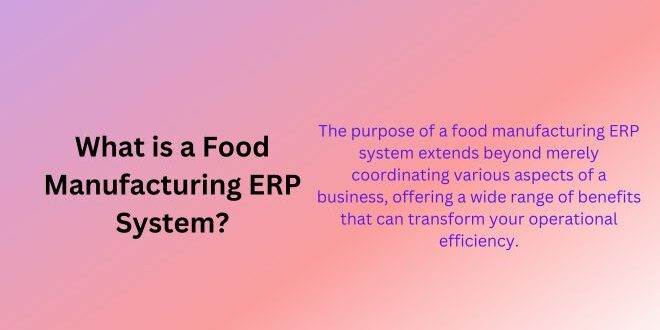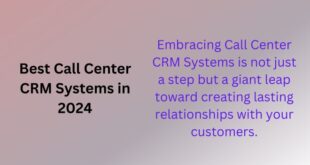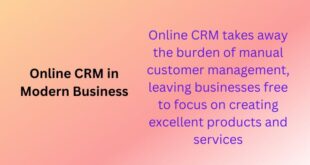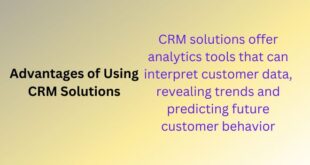Do you know the Food Manufacturing ERP System? Do you recall the magic of the assembly lines shown in Charlie and the Chocolate Factory? From little candies to entire chocolate bars, everything was automated and efficient. The scene painted a perfect picture of synchronized manufacturing. In real life, however, attaining such a level of automation and efficiency requires innovative solutions; one such solution is the Enterprise Resource Planning (ERP) system in food manufacturing. This article provides an in-depth exploration of food manufacturing ERP systems, highlighting their key features, benefits, and potential challenges.
What is a Food Manufacturing ERP System?
In its most basic form, an ERP system integrates various functions within an organization into one complete system to streamline processes and information across the entire organization. When tailored specifically for the food manufacturing industry, it accommodates aspects such as ingredient traceability, batch processing, compliance reporting, and much more.
Related Article: Unlock the Potential of Your Business with Thryv CRM
Key Features of a Food Manufacturing ERP System
1. Inventory Management: Food manufacturing ERP systems allow for real-time tracking of inventory levels and expiry dates to prevent waste and ensure product freshness.
2. Quality Control: These systems provide functionalities for monitoring, controlling, and documenting the quality of all ingredients and finished goods.
3. Traceability: ERP Systems ensure complete traceability of all items from source to shelf, which is crucial for food safety and regulatory compliance.
4. Planning and Scheduling: This feature helps to effectively plan and schedule production, balancing demand and inventory levels.
“A robust food manufacturing ERP system serves as the backbone of the entire operation, integrating every aspect of the business into a centralized, streamlined process.”
Why is a Food Manufacturing ERP System Important?
The purpose of a food manufacturing ERP system extends beyond merely coordinating various aspects of a business, offering a wide range of benefits that can transform your operational efficiency.
Enhanced Traceability and Compliance
Given the strict regulations surrounding food safety and quality, an ERP system is invaluable in tracking every ingredient from procurement to providing end-consumer products, ensuring compliance with regulations such as the Food Safety Modernization Act (FSMA).
Reduction in Waste
By providing real-time insight into inventory levels, food manufacturing ERP systems help businesses reduce spoilage and waste, increasing efficiency and profitability.
Improved Decision Making
Having a bird’s-eye view of the entire operation can empower stakeholders to make informed, strategic business decisions based on real-time data.
Challenges in Implementing a Food Manufacturing ERP System
While ERP systems open the gateway to significant optimization, it’s important to acknowledge that their implementation isn’t without challenges.
High Costs and Long Payback Periods
The initial investment for an ERP system can be significant, and it may take time for businesses to realize the benefits clearly.
Related Article: What is a Logistics ERP System and How Can It Benefit Your Business?
Complex Implementation Process
Given their comprehensive nature, implementing an ERP system involves changes at every level of the business, which can initially be a complex and unsettling process.
Need for Staff Training
As ERP systems transform how a business operates, staff training is often necessary, adding to the time and cost of the entire adaptation process.
Choosing the Right ERP System for Your Food Manufacturing Needs
Whether you’re a bakery, a beverage manufacturer, or a large-scale food production facility, implementing a well-suited ERP system can revolutionize your operation. However, the journey to ERP implementation and adaptation is not without challenges. It involves a careful evaluation of business needs, costs, and a robust change management strategy. But with the right system in place, efficiency, traceability, and productivity are just a few of the keys that unlock the door to success in the food manufacturing industry.
So, is your business ready to embrace the future of food manufacturing with an ERP system? The answer can decide how well you adapt and thrive in a fast-paced and increasingly technology-driven industry.




